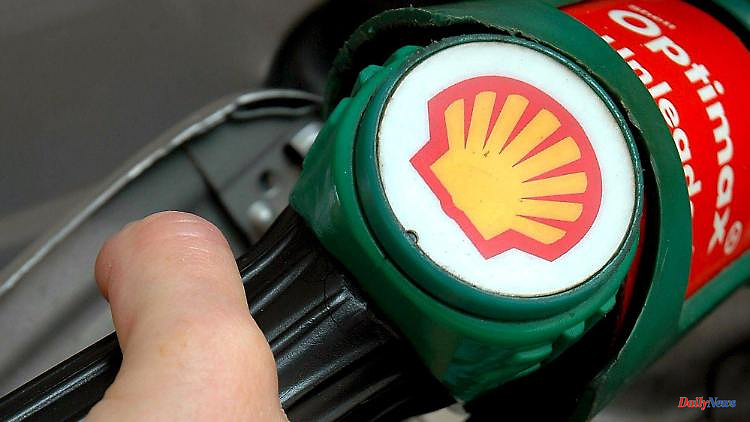Mineral oil companies and other energy suppliers make billions in profits, while industry and consumers groan under the record prices. Other countries want to tax the so-called excess profits. Italy introduces a special tax. Germany does the opposite.
The oil company Saudi Aramco posted a profit of 40 billion dollars in the first quarter of this year alone. An increase of more than 80 percent compared to the previous year. The largest western oil companies known as "Big Oil" meanwhile doubled their profits to a total of 30 billion euros in just three months. The gigantic profit increases of these and some other companies have also been paid for by German consumers and companies. It will probably be several thousand euros this year that an average household will have to spend more on electricity and heating than in the previous year.
The redistribution of billions of euros from energy consumers to oil and gas suppliers not only violates the sense of justice. It is a problem for the entire economy. Rising prices fuel inflation. Consumers have significantly less money, which is likely to be reflected in falling domestic demand in the coming months. Many industrial companies are in danger of going bankrupt under the burden of high energy costs.
All of these are good reasons to take back the so-called excess profits from the energy companies and to support consumers or companies who are particularly burdened with the money. Several countries are working on a "windfall tax". Spain introduced one last fall. Italy has now decided. The EU Commission has already given the green light - subject to a number of restrictive conditions - for a time-limited special tax for the energy sector. However, controversial plans for "windfall taxes" are also on the table in the USA and Great Britain.
In Germany, on the other hand, the federal government has so far played it down. Economics Minister Robert Habeck brought the idea into play as early as March, when he called the "skimming off of excess profits" an "important issue". But he immediately went on to say how difficult it was to implement. Finance Minister Christian Lindner has categorically rejected the idea several times. This is not compatible with German tax law and makes no political sense. The corporations should make large investments in renewable energies. You shouldn't take away their profits now. Experts see things differently. Because the enormous additional income that those who have access to raw materials such as natural gas or oil are now making is not due to their own investments, but they are profiting from the war in Ukraine.
The basic idea of an excess profit tax is absolutely correct, says the economist and tax expert Stefan Bach from the German Institute for Economic Research (DIW): "Economic rents - i.e. profits that accrue without anyone doing anything for them - should generally be heavily taxed.
Skimming off these excess profits is complicated in practice and can easily cause collateral damage, Bach warns. "Companies' profits fluctuate wildly, and determining the actual rate of return is very time-consuming," says Bach. In addition, one should not reduce the incentives to remedy the shortage signaled by the high prices - i.e. to mobilize more energy, preferably renewable. "Therefore, hardly anyone wants to skim off the high profits of the pharmaceutical companies from the corona vaccines that they have successfully developed in a short time."
Lawyers also doubt that it would be permissible in Germany - as the EU Commission proposes and as Italy has decided - to levy a special income tax on a single sector exclusively with the energy companies. A "penalty tax at the expense of specific sectors" is "doubtful in terms of equality law," writes the lawyer and expert in finance and tax law Hanno Kube from Heidelberg University.
Above all, however, a large part of the profits do not accrue in the country in which the consumers live, for example Germany, but at the headquarters of the oil and gas companies. Italy has solved this problem by measuring the tax not on the increase in profit of an energy supplier, but on the change in turnover. Specifically, the income from October 2021 to March 2022 will be compared with that of the same period of the previous year. If the increase is more than five million euros and more than ten percent, this additional income will be subject to a 25 percent special levy. Unlike profits, sales cannot be relocated abroad and can also be determined more easily and quickly from the sales tax returns of each company.
The government estimates that Italy could skim off about ten percent of the approximately 40 billion euro increase in energy costs for consumers among companies with its excess sales tax. Whether this works will be seen in June when the one-time fee has to be paid. The income is intended to relieve the burden on poorer households and energy-intensive companies in particular.
In Germany, the federal government is initially heading in the opposite direction: with the temporary reduction in the energy tax on petrol and diesel, the sales of the mineral oil companies will be massively relieved for three months from June 1st. They are in no way obliged to pass this relief on to consumers in the form of price reductions.












